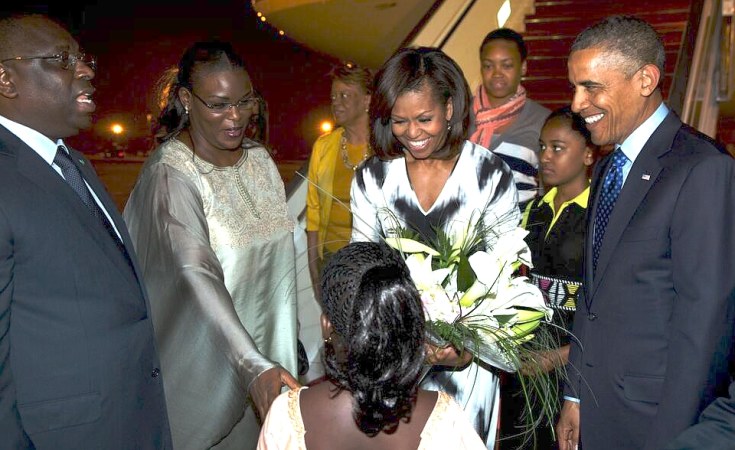Dakar — U.S. President Barack Obama committed himself in Dakar Thursday to both renewing and improving the legislation which gives qualifying African countries preferential access to American markets.
Addressing a joint news conference after a closed-door meeting with Senegalese president Macky Sall, Obama noted that the law, the Africa Growth and Opportunity Act (AGOA) expires in two years' time.
He told the news conference: "I am looking for ways to renew it but also to improve it so that we're generating more jobs and more trade."
He noted that while the U.S. has long provided aid to Africa, a "shift in paradigm" is needed. America's relationship with African nations should, Obama said, focus on mutually beneficial private investment and trade.
Speaking to the media on the first day of Obama's six-day visit to Africa, the two heads of state addressed a range of topics ranging from gay rights to regional security, and answered questions from both American and Senegalese journalists.
Standing beneath a tent made of their two countries' flags symbolically stitched together, Macky Sall saluted the "excellent cooperation" between the United States and Senegal, and noted the countries share the core values of "freedom, democracy, the peaceful coexistence of religion and culture, and good governance."
Obama lauded Senegal's long history of democratic governance. "Senegal is one of the most stable democracies in Africa and one of the strongest partners that we have in the region. It's moving in the right direction with reforms to deepen democratic institutions," he said.
Both presidents made poignant remarks about former president Nelson Mandela, who is in critical condition in a South African hospital. "My first act of political activism was when I was at Occidental College (in California)," he said. "As a 19-year-old I got involved in the anti-apartheid movement back in 1979-80," he said.
He added that Mandela's commitment to justice has greatly influenced his political and social philosophy. "It gave me a sense of what is possible in the world when righteous people, when people of good will, work together on behalf of a larger cause," he said.
Sall agreed, saying that Mandela "is an example for all the world, and politicians should be inspired by his humility."
Fielding a question from an American reporter, Obama voiced his strong support for the U.S. Supreme Court's ruling Wednesday which will extend federal marriage benefits to same-sex couples. "I believe at the root of who we are as a people, as Americans, is the basic precept that we are all equal under the law," he said.
He noted that the issue of gay rights had not been broached during his conversation with his Senegalese counterpart, but offered a message to Africa. While acknowledging the cultural differences between African countries and the U.S., he said that "when it comes to how the state treats people, how the law treats people, I believe that everybody has to be treated equally. I don't believe in discrimination of any sort."
In Senegal, however, homosexuality is an imprisonable offence. President Sall said that "Senegal is not ready to decriminalize homosexuality," but added that the rights of gay and lesbian people must be upheld under law.
"Senegal is a tolerant country," he added. "Though we are not in a position to revoke this law, it does not mean we are homophobic."
After responding to questions relating to American domestic politics, President Obama steered the conversation back to Africa. "I just want to make sure we don't lose focus here," he said.
"The reason I came to Africa is because Africa is rising. This is going to be a continent that is on the move. It is young, it is vibrant, and full of energy."
Much to the delight of the Senegalese at the news conference, Obama reaffirmed the strong bond between the two nations with a phrase in Wolof, the national language. "Nio far," he said, meaning we are together.


